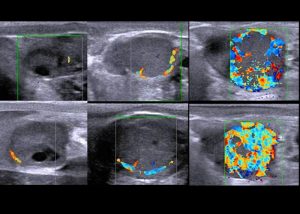Maria Villagrasa & Nuria García
Young calves are especially vulnerable in the days after birth due in part to the physiological stress of calving and its effects on reduced immunocompetence. Several experiments have indicated that the stress the mother experiences at the end of the gestation, coupled with the onset of oxygen breathing, can promote oxidative stress and negatively affect newborn calves.
On the other hand, daily dairy cattle dietary supplements of n-3 fatty acids (FA) positively influence health in calves by improving growth and indicators of immune function through a reduction of oxidative stress.
Studies conducted so far are based on the FA addition to the milk replacer, and not to the colostrum. In order to explore the latter option, a group of researchers from Michigan State University (Opgenorth et al., 2020) hypothesized that supplementing colostrum with FA could increase blood concentration in calves and thus mitigate the oxidative stress experienced in the first two weeks of life.
Fatty acid and tocopherol supplementation
For the experiment the researchers used 16 heifers that received within 6 hours of birth 0 (control) or 60 ml (treatment) of a mixture of fish and linseed oils (1:1) along with 200 mg of α -tocopherol in 2. 8 l colostrum.
Blood samples were taken on days 1, 2, 4, 7, 14 and 21 after birth to assess the concentration of poly-unsaturated FA (PUFA), tocopherol, total serum protein and oxidative state index (OSE), which is an indirect indicator of oxidative stress that examines the balance between the concentration of reactive oxygen and nitrogen species (RONS) and serum antioxidant capacity. Animal health was observed daily, and weight and height were recorded at birth and at 3 and 8 weeks.
Relationship between omega-3 fatty acids and oxidative stress
The results indicated that the OSE values in the treatment group generally showed greater stability with less fluctuation between days. In contrast to the control, the treatment group reduced OSE values between days 1 and 2, and although this value gradually increased from day 2 to 7, this increase was lower and more gradual compared to non-supplemented calves.
It appears that the decrease in OSE in treatment calves was more the result of the reduction in production of reactive species than a large increase in antioxidant capacity. Researchers postulated that a possible underlying mechanism could be the increase in n-3 FA competing for the same enzymatic reactions that use n-6 FA to produce a wide variety of pro-inflammatory metabolites.
The authors believe that the reduction in the production of OSE in treatment calves thanks to n-3 FA may have improved further thanks to the addition of 200 mg of α-tocopherol, which was included to protect n-3 FA from peroxidation.
Polyunsaturated FA supplementation is known to decrease concentrations of α tocopherol in the blood and this may be due to a depletion of n-3 FA to prevent peroxidation. Although this study showed no decrease in the concentrations of α-tocopherol in treated calves during the first week, they showed no visible signs of α-tocopherol deficiency, and plasma concentrations remained within recommended levels.
Another element that was also considered in the study was how the supplement affected colostrum immunoglobulins, since the transfer of these and especially IgG is an essential factor that determines the resistance of calves to disease. The authors found that the normal absorption of these immunoglobulins was not altered in treated calves.
Conclusions
The main conclusion of this study is that a supplement added to the colostrum made with 60 ml of a mixture of fish and linseed oils (1:1) and 200 mg of α-tocopherol is safe to feed to calves and has no negative effects on the passive transfer of immunoglobulins.
Judging by these results, the authors claim that reducing oxidative status could improve the health status and growth of calves.
Reference
Opgenorth, J., Sordillo, L.M., VandeHaar, M.J. 2020. Colostrum supplementation with n-3 fatty acids and α-tocopherol alters plasma polyunsaturated fatty acid profile and decreases an indicator of oxidative stress in newborn calves. J. Dairy Sci. 103:3545–3553.
© 2021 Dairy Research Review. All Rights Reserved.











